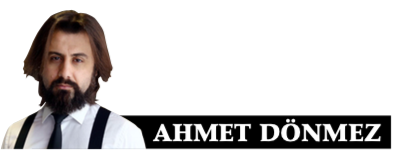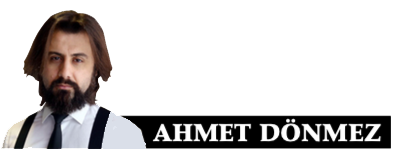COMMENTARY – AHMET DÖNMEZ
Supreme Court of Pakistan’s declaration of the Gülen Movement as a ‘terrorist organization’ holds a massive contradiction regarding this country’s own history. Having been fighting against the plague of terrorism for many years and sacrificed thousands of her citizens at terrorist attacks, Pakistan used to embrace PakTurk Schools that were inferred with the Gülen Movement. Educating children and youth across Pakistan since 1995, the schools have so far won 260 international awards. Nowadays, due to some political gains and Erdoğan’s pressures, they have been declared as a ‘terrorist organization’.
Acting as an antidote to radicalism and terrorism has been one of the significant missions of PakTurk educational institutions. Parents have lauded the schools not only for their academic success, but also for this aspect.
One of the issues which worried Turkish teachers in Pakistan was their outer appearance. In Pakistan, which has been swathed by radical versions of Islam for decades, some almost do not consider men who do not sport a beard but wear a shalwar kameez and put on a tie as Muslims. Gülen-Movement-inspired Turkish teachers there had an altogether different look. None of them had beards and almost all of them were wearing ties. They had a modern look.
In order to understand this better, it is essential to recall the New York Times article “Turkish Schools Offer Pakistan a Gentler Vision of Islam” published on May 4, 2008. Penned by renowned NYT correspondent Sabrina Tavernise, the mission of the Turkish schools in Pakistan were highly commended in the article.
Tavernise also interviewed teacher Mesut Kaçmaz, who would be abducted along with his family from their home and thrown into jail in Turkey nine years later. Starting with the statement, “Praying in Pakistan has not been easy for Mesut Kacmaz, a Muslim teacher from Turkey,” the article had some significant portions as follows:
“He tried the mosque near his house, but it had Israeli and Danish flags painted on the floor for people to step on. The mosque near where he works warned him never to return wearing a tie. Pakistanis everywhere assume he is not Muslim because he has no beard.
“Kill, fight, shoot,” Mr. Kacmaz said. “This is a misinterpretation of Islam.”
But that view is common in Pakistan, a frontier land for the future of Islam, where schools, nourished by Saudi and American money dating back to the 1980s, have spread Islamic radicalism through the poorest parts of society. With a literacy rate of just 50 percent and a public-school system near collapse, the country is particularly vulnerable.
Mr. Kacmaz is part of a group of Turkish educators who have come to this battleground with an entirely different vision of Islam. Theirs is moderate and flexible, comfortably coexisting with the West while remaining distinct from it. Like Muslim Peace Corps volunteers, they promote this approach in schools, which are now established in more than 80 countries, Muslim and Christian.
Their efforts are important in Pakistan, a nuclear power whose stability and whose vulnerability to fundamentalism have become main preoccupations of American foreign policy. Its tribal areas have become a refuge to the Taliban and Al Qaeda, and the battle against fundamentalism rests squarely on young people and the education they get.
At present, that education is extremely weak. The poorest Pakistanis cannot afford to send their children to public schools, which are free but require fees for books and uniforms. Some choose to send their children to madrasas, or religious schools, which, like aid organizations, offer free food and clothing. Many simply teach, but some have radical agendas. At the same time, a growing middle class is rejecting public schools, which are chaotic and poorly financed, and choosing from a new array of private schools.
The Turkish schools, which have expanded to seven cities in Pakistan since the first one opened a decade ago, cannot transform the country on their own. But they offer an alternative approach that could help reduce the influence of Islamic extremists.
They prescribe a strong Western curriculum, with courses, taught in English, from math and science to English literature and Shakespeare. They do not teach religion beyond the one class in Islamic studies that is required by the state. Unlike British-style private schools, however, they encourage Islam in their dormitories, where teachers set examples in lifestyle and prayer.
(…) That approach appeals to parents in Pakistan, who want their children to be capable of competing with the West without losing their identities to it. Allahdad Niazi, a retired Urdu professor in Quetta, a frontier town near the Afghan border, took his son out of an elite military school, because it was too authoritarian and did not sufficiently encourage Islam, and put him in the Turkish school, called PakTurk.
“Private schools can’t make our sons good Muslims,” Mr. Niazi said, sitting on the floor in a Quetta house. “Religious schools can’t give them modern education. PakTurk does both.”
(…) In Karachi, a sprawling city that has had its own struggles with radicalism — the American reporter Daniel Pearl was killed here, and the famed Binori madrasa here is said to have sheltered Osama bin Laden — the two approaches compete daily.
The Turkish school is in a poor neighborhood in the south of the city where residents are mostly Pashtun, a strongly tribal ethnic group whose poorer fringes have been among the most susceptible to radicalism. Mr. Kacmaz, who became principal 10 months ago, ran into trouble almost as soon as he began. The locals were suspicious of the Turks, who, with their ties and clean-shaven faces, looked like math teachers from Middle America.
“They asked me several times, ‘Are they Muslim? Do they pray? Are they drinking at night?’” said Ali Showkat, a vice principal of the school, who is Pakistani.
(…) When Mr Kacmaz prayed at a mosque, two young men followed him out and told him not to return wearing a tie because it was un-Islamic…”
ERDOĞAN’S ARGUMENT: INTERFAITH DIALOGUE
Turkey ranks 104th among 137 countries in the 2018 World Economic Forum Quality of Math and Science Education index. Pakistan ranks the 96th. Despite this, Erdoğan conducts actively to get the schools founded by individuals sympathetic to Gülen Movement transferred to the Turkiye Maarif Foundation (TMF), which he himself commissioned. Transfer will take place by means of the Pakistani apex court’s cited decision.
While striving to convince Islamabad, Erdoğan had pressed on various arguments, including the Interfaith Dialogue activities of Fethullah Gülen. Speaking to the National Assembly of Pakistan on November 17, 2016, Erdoğan had targeted the Interfaith Dialogue process started by Gülen with Vatican in 1998. Claiming that no dialogue can take place between Islam and other religions, Erdoğan had said, “You see that this man can establish interfaith dialogue with Vatican comfortably. How can interfaith dialogue take place? What kind of a dialogue can we place between Islam and other religions? Is this ever possible? Yet, that man does that.”
As a matter of fact, Pakistani media and parents had voiced their concern about Erdoğan’s take-over of these schools may open the door to radicalism. It was expressed that the prospective personnel from Turkey were selected on political basis and lacked administrative and foreign language skills. In addition, citing AKP’s close relationship with the Muslim Brotherhood, it was emphasized that such political and ideological moves would relapse education in Pakistan by two decades.
Again, in Pakistani media, it was stressed that Erdoğan-backed TMF would receive funds from Gulf countries and the Islamic Development Bank, stating that “Jamaat-e-Islami Pakistan, AKP’s sister political concern, hopes to take over the administration of these schools. Parents fear Maarif Foundation would be used among the youth as a tool of support to the Muslim Brotherhood.”
Chief Justice of Pakistan, Mian Saqib Nisar who gave the decision of ‘terrorist organization’ about the Gülen Movement was hosted by Turkish President Erdoğan on December 17. I had already expressed my views and posed questions about that meeting in my article, “Was the decision taken in that meeting?”.






